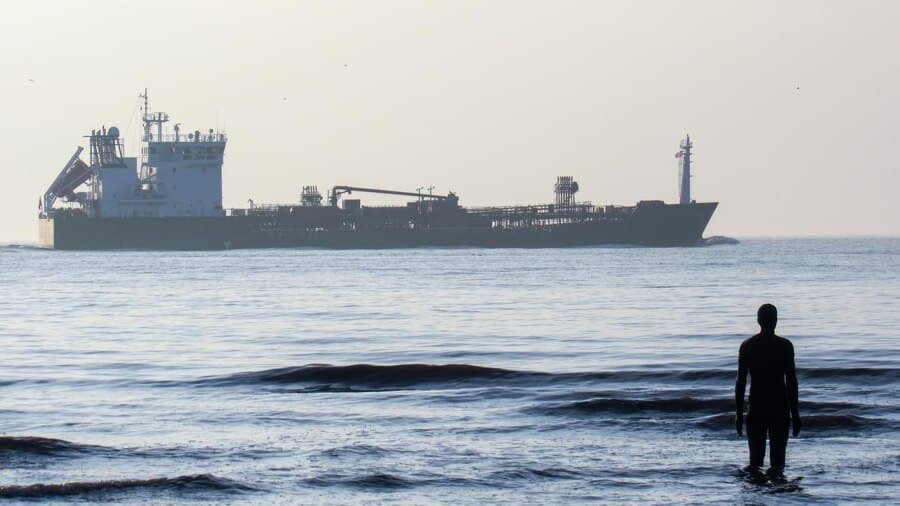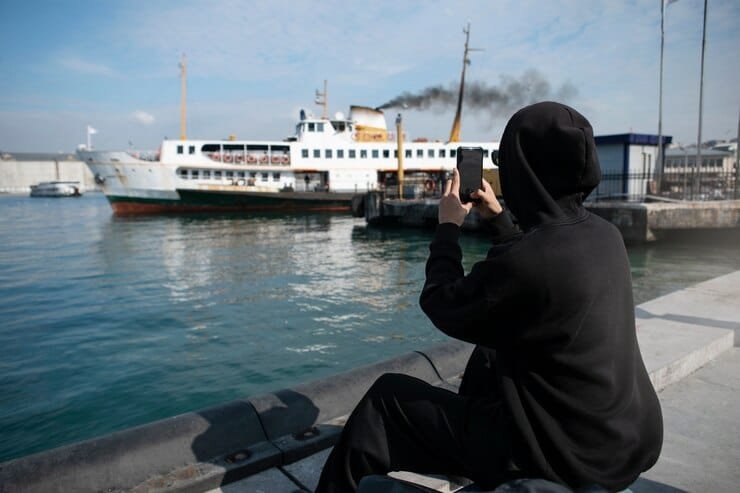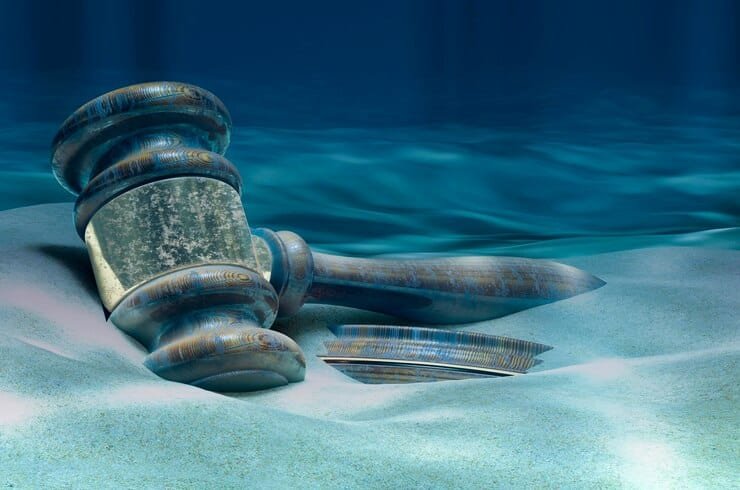Maritime law, also known as admiralty law, governs legal matters on the high seas and navigable waters. This specialized body of law addresses a variety of issues, ranging from maritime commerce and navigation to environmental concerns and the safety of those traveling by sea. One of the most critical areas covered by maritime law is the combat against crime at sea, which includes piracy, human trafficking, drug smuggling, illegal fishing, and environmental crimes.
Also Read: Human Rights Law and Its Role in Protecting Individual Freedoms
Crimes at sea are particularly challenging to combat due to the vastness of the oceans, the complexities of international boundaries, and the difficulty of enforcing laws in international waters. However, through international conventions, cooperation between states, and innovative legal frameworks, significant strides have been made in addressing these crimes. This article explores the nature of maritime crime, the international legal framework that governs it, and the various approaches taken by states and international organizations to combat crime at sea.
1. The Nature of Crime at Sea
The ocean covers over 70% of the Earth’s surface, providing a vast and largely ungoverned space where criminal activity can occur. Maritime crime can take various forms, with some of the most prevalent being:
Also Read: Understanding Immigration Law: A Comprehensive Guide For Beginners
a. Piracy
Piracy is one of the oldest and most notorious crimes at sea. Defined under Article 101 of the United Nations Convention on the Law of the Sea (UNCLOS), piracy involves any illegal act of violence, detention, or depredation committed for private ends on the high seas. Modern-day piracy is most prevalent in regions such as the Gulf of Aden, the Strait of Malacca, and the Gulf of Guinea. Pirates often target commercial vessels, seeking ransom for captured crews or seizing valuable cargo.
b. Human Trafficking
Human trafficking, particularly involving the smuggling of migrants by sea, has become an alarming issue. Traffickers exploit vulnerable populations, transporting them across dangerous sea routes in overcrowded and unseaworthy vessels. This crime poses significant risks to the lives of the migrants and often results in human rights abuses, including forced labor and sexual exploitation.
c. Drug Smuggling
Drug cartels have long utilized the oceans as a means to transport illicit substances. Maritime drug smuggling often involves the use of small, fast boats that evade detection by coast guards and naval forces. The vastness of the sea and the difficulty of monitoring every vessel make this a persistent challenge for law enforcement agencies.
Also Read: How Small Business Tax Law Impacts Your Startup
d. Illegal Fishing
Illegal, unreported, and unregulated (IUU) fishing is a major concern for maritime security and environmental sustainability. IUU fishing threatens the livelihoods of coastal communities, depletes fish stocks, and undermines conservation efforts. Many of the vessels involved in illegal fishing activities operate under “flags of convenience,” making it difficult for authorities to track and apprehend them.
e. Environmental Crimes
Environmental crimes at sea include illegal dumping of waste, oil spills, and the destruction of marine ecosystems. These activities can have devastating effects on marine life, coastal communities, and the global environment. International law, such as the International Convention for the Prevention of Pollution from Ships (MARPOL), seeks to regulate and prevent such actions, but enforcement remains a challenge.
2. The International Legal Framework for Combatting Crime at Sea

To effectively address crime at sea, a robust international legal framework is essential. Several key treaties and conventions establish the rules for prosecuting and preventing maritime crime. These agreements are supported by international organizations, such as the United Nations and the International Maritime Organization (IMO), which play critical roles in coordinating efforts to combat maritime crime.
Also Read: What Is Common Law And How Does It Work?
a. United Nations Convention on the Law of the Sea (UNCLOS)
UNCLOS, often referred to as the “Constitution of the Oceans,” is the primary international treaty governing maritime activities. It provides the legal framework for the use of the seas, defining the rights and responsibilities of states concerning territorial waters, exclusive economic zones (EEZs), and the high seas.
UNCLOS also addresses issues of maritime security, including the prosecution of piracy. Article 105 grants states the authority to seize pirate ships and arrest individuals engaged in piracy on the high seas, allowing for the prosecution of pirates under national laws. UNCLOS serves as the foundation for international cooperation in combatting crimes at sea, including piracy, trafficking, and environmental crimes.
b. The Suppression of Unlawful Acts (SUA) Convention
The SUA Convention, adopted by the International Maritime Organization in 1988, was designed to enhance maritime security by preventing unlawful acts against ships. It criminalizes acts such as hijacking, sabotage, and the seizure of vessels for terrorist purposes. Under SUA, states are obligated to establish jurisdiction over crimes committed at sea and cooperate in extraditing offenders.
c. The International Convention for the Safety of Life at Sea (SOLAS)
SOLAS is a treaty that outlines the minimum safety standards for ships operating in international waters. While it primarily addresses safety measures, such as ship construction and emergency equipment, it also plays a role in combatting maritime crime by ensuring that ships adhere to strict security protocols. For instance, ships are required to maintain a certain level of preparedness for dealing with security threats, including piracy and terrorism.
Also Read: Exam Time Management Strategies to Boost Your Performance
d. Regional Agreements
In addition to global treaties, several regional agreements focus on combatting specific types of maritime crime. One notable example is the Djibouti Code of Conduct, which aims to suppress piracy and armed robbery in the western Indian Ocean and the Gulf of Aden. Similarly, the Yaoundé Code of Conduct focuses on combatting piracy, armed robbery, and other illicit activities in the Gulf of Guinea.
3. Combatting Piracy and Armed Robbery at Sea

Piracy remains one of the most pressing challenges for maritime law enforcement. However, through international cooperation and innovative legal approaches, significant progress has been made in reducing piracy incidents in certain regions.
a. International Naval Patrols
One of the most effective strategies in combatting piracy has been the deployment of international naval patrols in piracy-prone regions. For example, the European Union Naval Force’s Operation Atalanta, the NATO-led Operation Ocean Shield, and the Combined Maritime Forces have all played critical roles in reducing piracy in the Gulf of Aden and off the coast of Somalia.
These patrols serve as a deterrent to pirates and provide protection for commercial vessels traveling through high-risk areas. Naval forces also engage in boarding operations, inspecting suspicious vessels, and apprehending suspected pirates.
b. Prosecution of Pirates
Under UNCLOS, states have the authority to prosecute pirates captured on the high seas. However, the prosecution of pirates presents several challenges, including issues related to jurisdiction and the gathering of evidence. Many states lack the legal infrastructure or political will to prosecute pirates, leading to a phenomenon known as “catch and release,” where pirates are detained and then released without trial.
To address this, some states have entered into agreements with regional countries to prosecute pirates in local courts. For example, Kenya and the Seychelles have prosecuted hundreds of Somali pirates captured by international naval forces.
c. Private Security Contractors
In response to the threat of piracy, many shipping companies have turned to private security contractors to provide armed guards on board vessels. While this has proven effective in deterring pirate attacks, it raises legal and ethical concerns. The use of force at sea must be carefully regulated to ensure that the rights of individuals, including suspected pirates, are respected.
4. Combatting Human Trafficking and Smuggling

Human trafficking and smuggling by sea present unique challenges for law enforcement. Traffickers often exploit vulnerable populations, subjecting them to dangerous and inhumane conditions. To combat this, states and international organizations have implemented a range of legal and operational measures.
a. International Cooperation and Rescue Operations
The Mediterranean Sea has become a major route for human smuggling, with thousands of migrants attempting to cross from North Africa to Europe each year. In response, European nations have launched coordinated rescue and interdiction operations to intercept smuggling vessels and provide humanitarian assistance to migrants in distress.
Operation Sophia, launched by the European Union, is one such mission that aims to disrupt the business model of human smugglers while saving lives at sea. The operation involves naval patrols, search and rescue missions, and the destruction of smuggling vessels.
b. Legal Framework for Combatting Trafficking
The Protocol to Prevent, Suppress and Punish Trafficking in Persons, a supplement to the United Nations Convention against Transnational Organized Crime, provides the legal framework for combatting human trafficking. This protocol requires states to criminalize trafficking, assist victims, and cooperate in international efforts to dismantle trafficking networks.
c. Prosecution of Human Traffickers
Prosecuting human traffickers is a key component of combatting this crime. However, it often involves complex legal challenges, such as jurisdictional issues and the difficulty of gathering evidence in international waters. Many states have established specialized law enforcement units and legal frameworks to address human trafficking, ensuring that traffickers are brought to justice.
5. Combatting Drug Smuggling
Drug smuggling by sea is a significant problem, particularly in regions such as the Caribbean and the Pacific. Smugglers use a variety of tactics to evade detection, including employing “go-fast” boats, submersibles, and even concealing drugs in legitimate cargo.
a. International Collaboration and Interdiction
To combat maritime drug smuggling, international cooperation is essential. States frequently collaborate on interdiction efforts, sharing intelligence and conducting joint operations to intercept drug shipments. The United States, through its Coast Guard and Navy, has been particularly active in intercepting drug shipments in the Caribbean and Eastern Pacific.
b. Legal Framework for Prosecution
Drug smuggling is governed by both national and international laws. The United Nations Convention against Illicit Traffic in Narcotic Drugs and Psychotropic Substances provides a comprehensive legal framework for combatting drug smuggling. It obligates states to criminalize the trafficking of drugs, establish jurisdiction over drug offenses , and cooperate in the prosecution of offenders.
Also Read : How Does Bankruptcy Law Address The Treatment Of Secured Vs Unsecured Debts?
Conclusion
Maritime law plays a crucial role in regulating the vast expanse of the world’s oceans and combatting crime at sea. From piracy to human trafficking, drug smuggling, and environmental crimes, the challenges of maritime crime require coordinated international efforts and robust legal frameworks. Through treaties such as UNCLOS and regional agreements, states have established the legal tools necessary to combat these crimes. However, enforcement remains a challenge, and continued international cooperation is essential to ensure the safety and security of the world’s oceans.
FAQs
What is maritime law?
Maritime law, also known as admiralty law, governs legal issues related to navigation, shipping, and crime on the high seas. It addresses a wide range of matters, including piracy, human trafficking, and environmental crimes.
How is piracy prosecuted under maritime law?
Piracy is defined and prosecuted under the United Nations Convention on the Law of the Sea (UNCLOS). States have the authority to arrest pirates on the high seas and prosecute them under their national laws.
What is the role of the International Maritime Organization (IMO)?
The IMO is a specialized agency of the United Nations responsible for regulating shipping and ensuring maritime safety. It plays a key role in creating and enforcing international conventions related to maritime security.
How does international cooperation help combat human trafficking at sea?
International cooperation is essential for combatting human trafficking. States work together to conduct rescue operations, intercept trafficking vessels, and prosecute traffickers under international protocols.
What are the environmental crimes addressed by maritime law?
Environmental crimes at sea include illegal dumping of waste, oil spills, and the destruction of marine ecosystems. International conventions, such as MARPOL, provide the legal framework for preventing and prosecuting these crimes.





